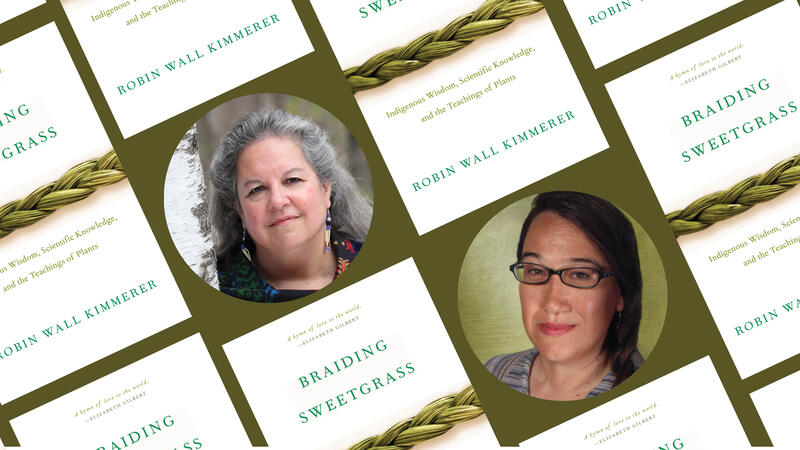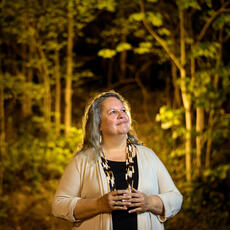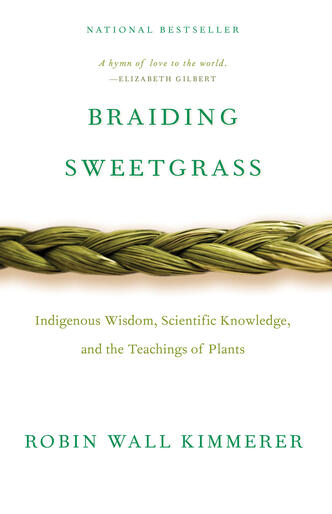The Blake School Northrop Campus
Juliet Nelson Auditorium
511 Kenwood Parkway
Minneapolis, MN 55403
United States
RSVP REQUESTED.

6:30 pm | Doors Open
7:00 pm | Program
8:00 pm | Book Signing
FREE. ALL ARE WELCOME. RSVP REQUESTED.
“Robin Wall Kimmerer opens a sense of wonder and humility for the intelligence in all kinds of life we are used to naming and imagining as inanimate.” —Krista Tippett, On Being
Join The Blake School and Milkweed Editions to celebrate best-selling author Robin Wall Kimmerer, whose book Braiding Sweetgrass: Indigenous Wisdom, Scientific Knowledge, and the Teaching of Plants draws from her life as an indigenous scientist, teacher, and mother to show how other living beings offer us gifts and lessons. Local author Heid E. Erdrich will join Kimmerer on stage and lead a conversation about beauty, language, and the intimacy of ecology. A book signing will follow.
ABOUT ROBIN WALL KIMMERER
Robin Wall Kimmerer is a mother, scientist, decorated professor, and enrolled member of the Citizen Potawatomi Nation. She is the author of Braiding Sweetgrass: Indigenous Wisdom, Scientific Knowledge and the Teaching of Plants, which has earned Kimmerer wide acclaim. Her first book, Gathering Moss: A Natural and Cultural History of Mosses, was awarded the John Burroughs Medal for outstanding nature writing, and her other work has appeared in Orion, Whole Terrain, and numerous scientific journals. She tours widely and has been featured on NPR’s On Being with Krista Tippett and in 2015 addressed the general assembly of the United Nations on the topic of “Healing Our Relationship with Nature.” Kimmerer lives in Syracuse, New York, where she is a SUNY Distinguished Teaching Professor of Environmental Biology, and the founder and director of the Center for Native Peoples and the Environment.
ABOUT BRAIDING SWEETGRASS
As a botanist, Robin Wall Kimmerer has been trained to ask questions of nature with the tools of science. As a member of the Citizen Potawatomi Nation, she embraces the notion that plants and animals are our oldest teachers. In Braiding Sweetgrass, Kimmerer brings these two lenses of knowledge together to take us on “a journey that is every bit as mythic as it is scientific, as sacred as it is historical, as clever as it is wise” (Elizabeth Gilbert).
Drawing on her life as an indigenous scientist, a mother, and a woman, Kimmerer shows how other living beings—asters and goldenrod, strawberries and squash, salamanders, algae, and sweetgrass—offer us gifts and lessons, even if we’ve forgotten how to hear their voices. In a rich braid of reflections that range from the creation of Turtle Island to the forces that threaten its flourishing today, she circles toward a central argument: that the awakening of a wider ecological consciousness requires the acknowledgment and celebration of our reciprocal relationship with the rest of the living world. For only when we can hear the languages of other beings will we be capable of understanding the generosity of the earth, and learn to give our own gifts in return.
ABOUT HEID E. ERDRICH
Heid E. Erdrich is the author of five collections of poetry including Curator of Ephemera at the New Museum for Archaic Media. Heid’s nonfiction work, Original Local: Indigenous Foods, Stories and Recipes from the Upper Midwest, earned a City Pages Best Food Book of 2014 designation. Her writing has won awards from the Minnesota State Arts Board, Bush Foundation, The Loft Literary Center, and First People’s Fund. Her book National Monuments won the 2009 Minnesota Book Award. In 2013 she was named a T Artists of the Year. Heid’s poem films have been screened widely at festivals and have won Best of Fest and a Best Experimental Short awards. She is an independent scholar and curator, a playwright, and founding publisher of Wiigwaas Press an Ojibwe language publisher. She teaches the MFA Creative Writing program of Augsburg College. Heid grew up in Wahpeton, North Dakota and is Ojibwe enrolled at Turtle Mountain.

